The Eulogy I Fought to Give
On my first Father’s Day without my dad, I woke up and felt the loss pack its punch.
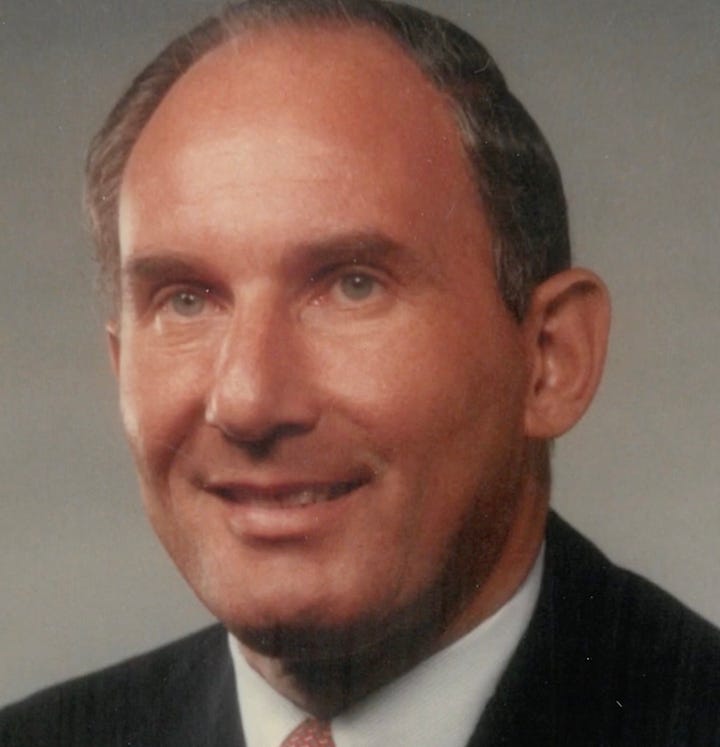
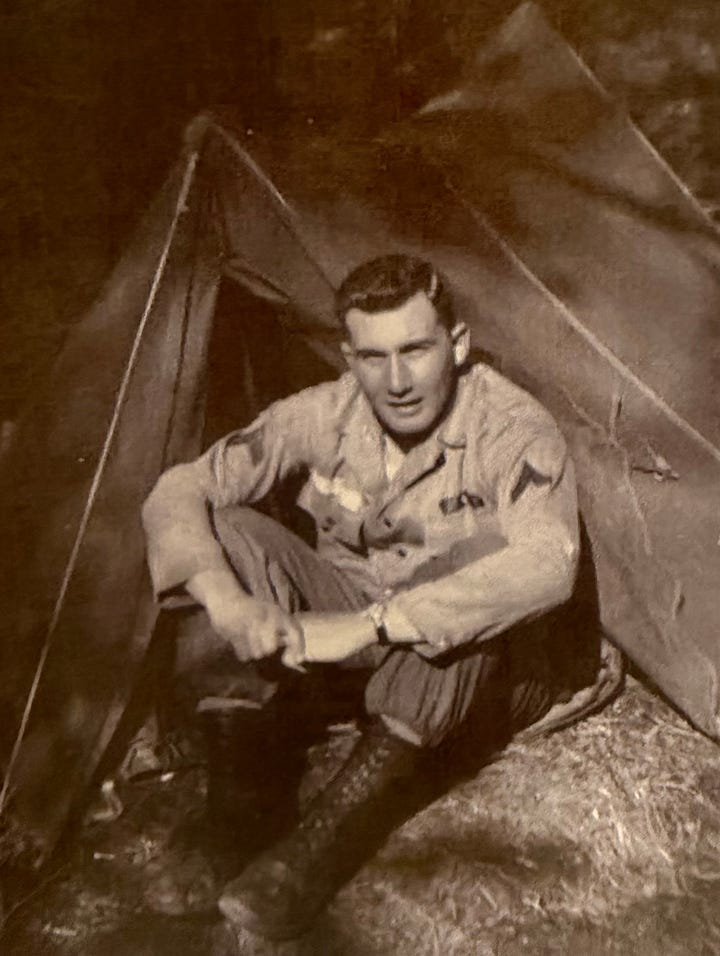
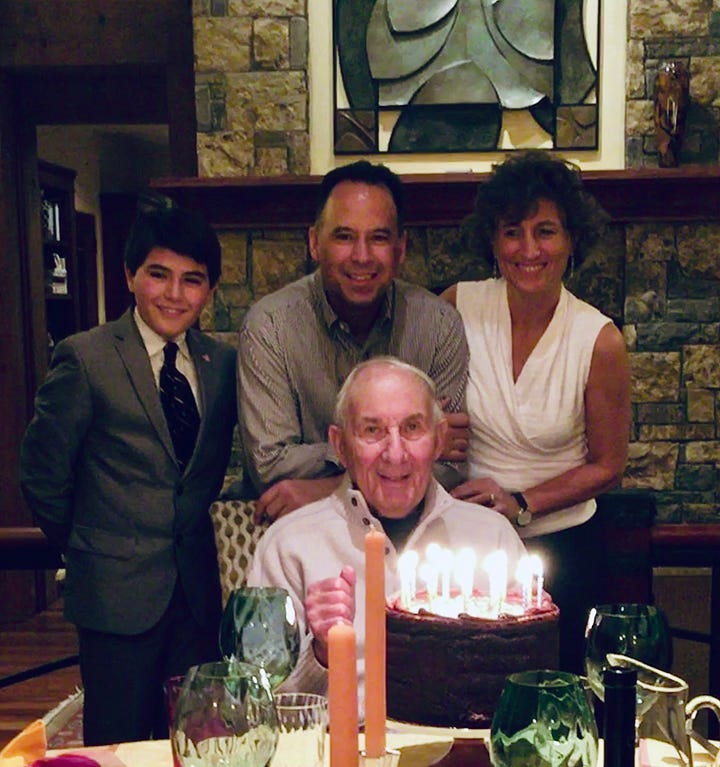
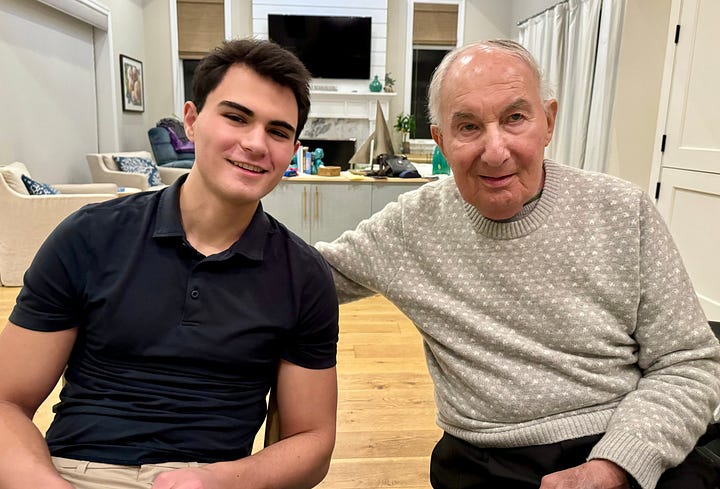
I’ve been working on a post that keeps getting overtaken by events—assassinations, firebombings, protests masquerading as justice, and now war in the Middle East. It’s about why lies are fueling hate and violence, and what we can do about it. The story picks up where I left off in my earlier post about what I learned from younger staffers during my time on a local theater board. I’ll return to that soon. But my first Father’s Day without my dad prompted me to tell a more personal story.
After my dad passed away last August, my mourning process was upended by a months-long battle — one I was thrust into by his wife, starting with whether I would even be allowed to eulogize him.
Thankfully, I prevailed. And as I look back, I’m especially proud that — despite the trauma — I was able to summon the clarity to express not just who he was, but who I became because of him.
It was in that moment that I realized: the most powerful form of persuasion we ever undertake is the one we perform on ourselves.
As I shared in a previous post, The Persuasion We Often Overlook: Ourselves, the ability to reframe—to re-examine, to re-understand, and ultimately re-program our memory—is one of the deepest acts of strength we can muster. That work allowed me to stand up, speak with love, clarity, and grace, and reclaim my relationship with my dad—not as it was in its most painful moments, but as I came to understand it at its most redemptive.
What follows is the eulogy I delivered for him. It’s not just a tribute to a complicated, extraordinary man—it’s a testament to the persuasive power of gratitude, resilience, and the will to see beyond hurt.
If you're navigating grief, forgiveness, or fractured family dynamics, I hope these words offer encouragement—not just to express your truth with grace, but to reclaim your power to define the meaning of your own story.
Eulogy for My Father, Donald Sturm
Below is the video of the eulogy I delivered for my dad and below that is the text. It was hard-won—but one of the most meaningful things I’ve ever written or spoken.
“Because I knew you, I have been changed for good.”
Those are the final words from my favorite Broadway tune, “For Good,” from the show Wicked, and it describes perfectly how countless people have been touched by my dad.
Rabbi Jonathan Sacks taught that the world is a book in which our life is a chapter. Whether others reading it will be inspired depends on our ability to make a blessing of our life by turning life into a blessing. There’s no better example of that than my dad, who—as the architect of his fate—created the future he wanted.
What an amazing man, and what a privilege to have had him as my teacher, role model, protector, champion, and Dad. For a glimmer of my attachment, I share my letter from sleep-away camp written in six-year-old chicken scratch:
“I love you so much. Will you come get me? I want to come home. Please send candy. Love, Melanie.”
To punctuate my longing, I drew a self-portrait of me crying. It worked.
So enamored of my dad, I only ever wanted to grow up and be like him. Near our house was a stately building with a tall spire in which I assumed my commanding father worked, doing very important things….turns out, that was the Presbyterian church. The imposing green building near downtown Omaha where he actually worked officed another guy, almost as important: Warren Buffett.
Whenever I went away in summers, he’d send me frequent letters — dictated and typed— describing his business and social activities, his reactions to the news, and always a Wall Street Journal editorial and investment banking report. Imagine the confidence boost from having a dad who believed I was capable of comprehending such mature matters.
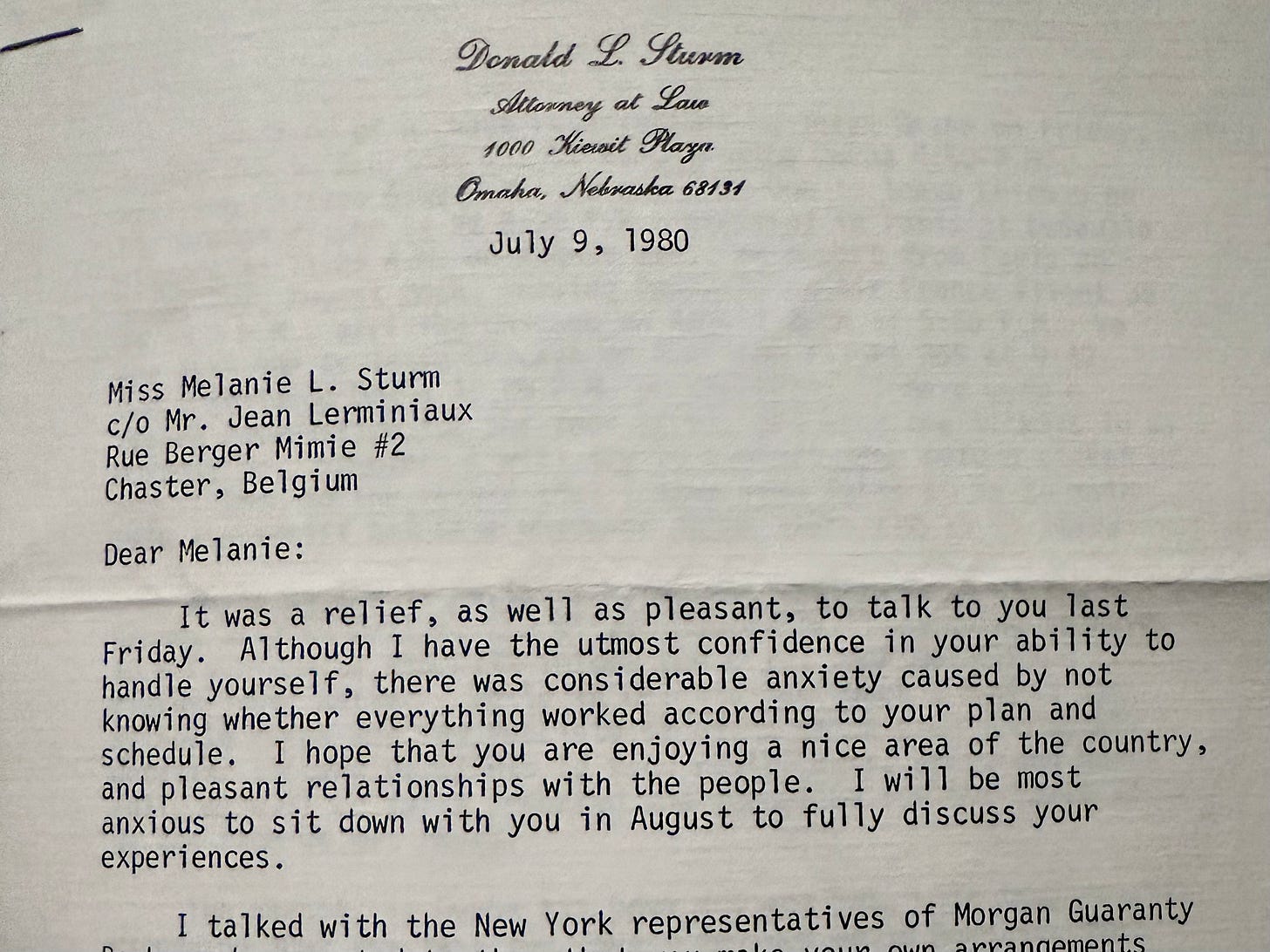
And when I encountered adversity — like wearing an ugly back brace to treat my scoliosis — my dad, who’d seen real obstacles in the army, convinced me that I had the grit to overcome mine. This became the theme of my college application: hardships are life’s training program for becoming resilient, compassionate, and wise.
And when our son Zane confronted his challenges, he too absorbed this lesson—even writing about it in his college essay.
A couple weeks ago, my dad encouraged Zane by telling him he had all the essentials. Zane said, “I’ll try to be as great as you,” to which my dad replied, “Greater.”
As Rabbi Sacks also taught, “To be immortal, all you need to do is engrave your values on the minds of your children.” And my dad didn’t stop with his children. Everyone here today and beyond — his extended family, anyone who’s worked with him, those he counted as friends, the beneficiaries of his philanthropic largess — can attest to the indelible footprints he left on many hearts and minds.
As much as my dad valued his business relationships, he cherished his family and cultivated an enduring ethic of gratitude — and its by-product, love. To their dying days, he was his parents’ doting son. Today, their names — Sophie and Mark Sturm — adorn the Denver Botanical Gardens Theatre, thanks to his generosity.
In his final days, Susan buoyed his spirits with a stream of family and close friends who recounted how he touched their lives. I heard my cousin Sibby thank him for calling her weekly after her father died when she was a teenager. My cousin Mark visited last week. He told me he was blown away when my dad asked if there was anything he could do for him.
As his weakening body betrayed him, my dad showed how to face his own demise with grace, dignity, humor, and especially gratitude for a life well-lived.
How extraordinary that he was able to say he’d accomplished all his life goals.
Though having been a man who carried many burdens, he didn’t want to be a burden himself. Though he’d lost his booming voice and lacked the breath to articulate all that his sharp mind wanted to say, he did not lose his humor, as this recent story testifies:
“How are you?” the hospital doctor asked entering his room.
“That’s what you’re supposed to tell me,” my dad replied.
“Did you have a good lunch?” the doctor queried. Lifting the corner of his mouth to smile, he replied,
“Depends on your definition of good.”
In the end, the good karma he’d created came back to him in spades, as Susan, Stephen, and Florence Nightingale — I mean Emily! — were relentless in helping him live his remaining days to his fullest, and in peace and relative comfort.
I am so profoundly grateful for his life, which is proof that the gate to eternity is not death; it’s the good we do that continues—long after we are here—to beget further good.
May the blessing of his life give rise to an ever-widening ripple of goodness. And may we all be inspired by his life’s chapter to live lives similarly worthy of remembrance so the world will be that much better because we too have been in it.
I’d love to hear from you!
Have you ever had to reframe a relationship in order to find peace—or to honor someone complicated with love?
Feel free to share your reflections in the comments. You never know who you might help by sharing your story.



Beautiful, Melanie. I’m sure he was very proud of you.
He sounds like a great guy and someone you would aspire to emulate Nicely written as usual